With the US House of Representatives rejecting aid to Ukraine, other Western politicians are looking for alternative sources, with their eyes on the nearly $300 billion in Russian assets that have been frozen since the country invaded Ukraine two years ago.
French Finance Minister Bruno Le Maire on February 28 publicly challenged his US counterpart's view that monetizing frozen Russian assets was legal, showing deep divisions among G7 countries.
Mr Le Maire, speaking after a meeting with G7 finance officials, rejected the US position, saying France believed there was no sufficient international legal basis for the move and further work was needed.
Any such move would need to be fully backed by international law and would need the support of all members of the Group of 20 (G20), including Russia, China and other countries that do not share the US's views, the French official stressed.
G7 officials have spent the past year struggling to agree on what to do with Russian sovereign assets frozen by the West following Moscow’s military campaign in Ukraine in February 2022. G7 leaders have been asked to find workable solutions before the group’s June summit in Italy.
Weigh
The G7 debate this week, on the sidelines of a meeting of finance ministers from the G20 major global economies in Sao Paulo, Brazil, shows that the West still has much to consider.
“This is not necessarily a confrontation. We are continuing discussions behind the scenes toward a common goal, which is to seek measures in accordance with international law,” Japan’s Vice Finance Minister for International Affairs Masato Kanda told reporters after the G7 ministers’ meeting on Feb. 28.
Western nations have frozen some €260 billion ($282 billion) in Russian securities and cash, more than two-thirds of which is in the European Union. The West has agreed that those funds will not be returned to Russia unless it commits to helping rebuild Ukraine.
With Russia gaining the upper hand on the front lines as the conflict enters its third year and aid from Washington facing hurdles in the US Congress, moves once considered high-risk are back on the table.
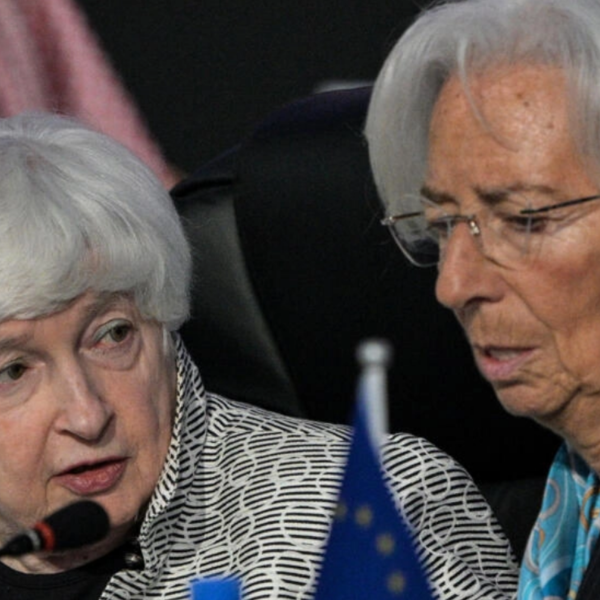
French Finance Minister Bruno Le Maire speaks during a press conference on the sidelines of the G20 meeting in Sao Paulo, Brazil, February 28, 2024. Photo: Euractiv
The United States is leading the effort, with Treasury Secretary Janet Yellen telling reporters on February 27 that there is a very strong legal and moral basis for extracting value from Russian assets, either seizing them outright or using them as collateral.
The UK and Canada have expressed support for moving to seize frozen Russian sovereign assets to help Ukraine. But France and Germany, along with the European Central Bank (ECB), have been extremely cautious.
They worry about Kremlin retaliation targeting European assets in Russia, as well as the impact on financial stability and the euro's status as a reserve currency.
It has been argued that such a drastic move would set a bad precedent – encouraging other countries to reject holding reserves in Western currencies lest they one day face similar penalties.
“We currently have no legal basis to seize Russian assets,” French Finance Minister Le Maire said, saying that broad international consensus was needed.
“This legal basis must be accepted not only by European countries, by the G7 countries, but also by all member states of the world community, and I mean all member states of the G20. We should not create any form of division among the G20 countries,” the French official said.
Moscow has repeatedly said it will respond appropriately if the West touches Russian assets.
Wait
While waiting for a more ambitious policy, the EU is making progress on plans to impose a hefty tax on profits from Russian sovereign wealth funds. On February 28, European Commission President Ursula von der Leyen proposed using the profits to buy weapons for Ukraine.
Profits reached 4.4 billion euros ($4.8 billion) last year. As of December 2023, the World Bank (WB) estimates Ukraine's reconstruction needs at 486 billion USD.
Mr Le Maire argued that the EU’s consideration of using profits from frozen Russian assets was a significant step forward, a view echoed by German Finance Minister Christian Lindner.
Mr Lindner told reporters he supported using the interest accrued on frozen Russian assets to support Ukraine in its fight against Moscow, calling it a “practical, legally safe step that can be implemented quickly”.
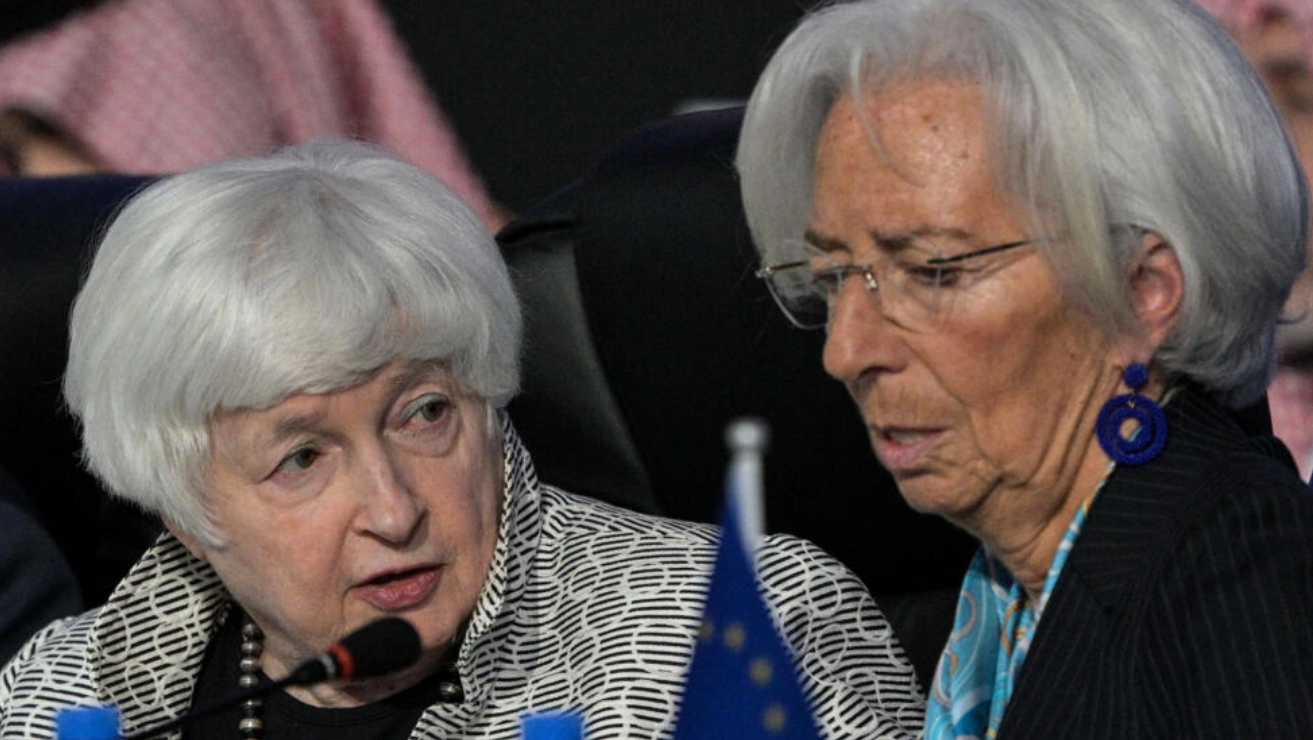
US Treasury Secretary Janet Yellen (left) and European Central Bank President Christine Lagarde, during the G20 Finance Ministers meeting in Sao Paulo, Brazil, February 28, 2024. Photo: France24
Washington supports the idea of a tax on profiteering, but argues that stronger action is also warranted.
Japanese Finance Minister Kanda declined to comment on Tokyo's stance, but said the idea of a predatory tax could gain traction in the G7 and the broader international community.
“Whether to take further steps will be something that requires further discussion, including what steps are acceptable under international law,” the Japanese official said.
Experts say it could take a year or more to extract value from the assets. Most, if not all, of the countries holding Russian assets will need to pass domestic legislation to make such moves possible.
Ms. Yellen on February 27 also acknowledged the risks, but downplayed concerns among some Europeans that seizing Russian assets would undermine the role of the dollar, euro or Japanese yen as important global reserve currencies .
Minh Duc (According to Reuters, Bloomberg)
Source







![[Photo] Top players gather at the 2025 Nhan Dan Newspaper National Table Tennis Championship](https://vphoto.vietnam.vn/thumb/1200x675/vietnam/resource/IMAGE/2025/5/23/9ad5f6f4faf146b08335e5c446edb107)
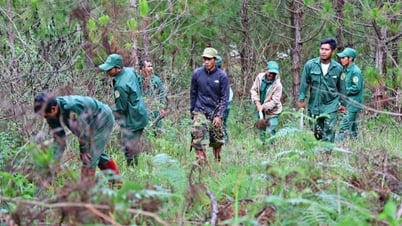



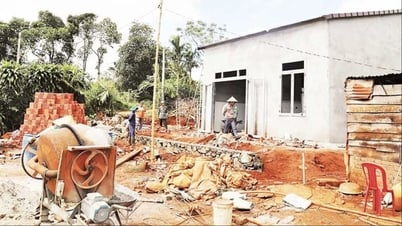
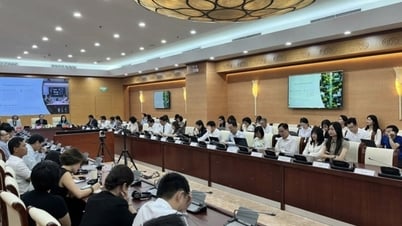
































































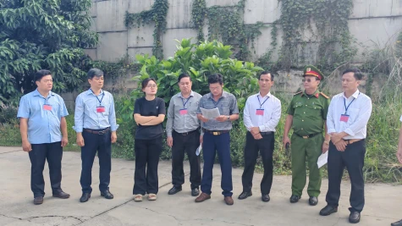













Comment (0)